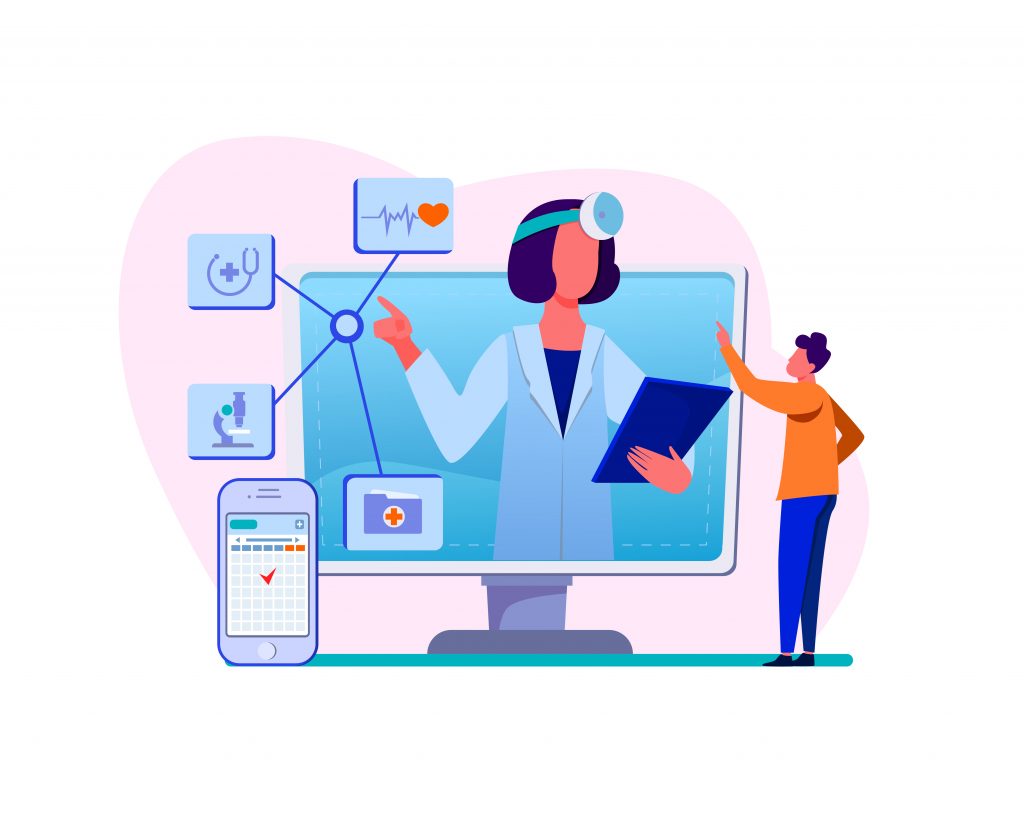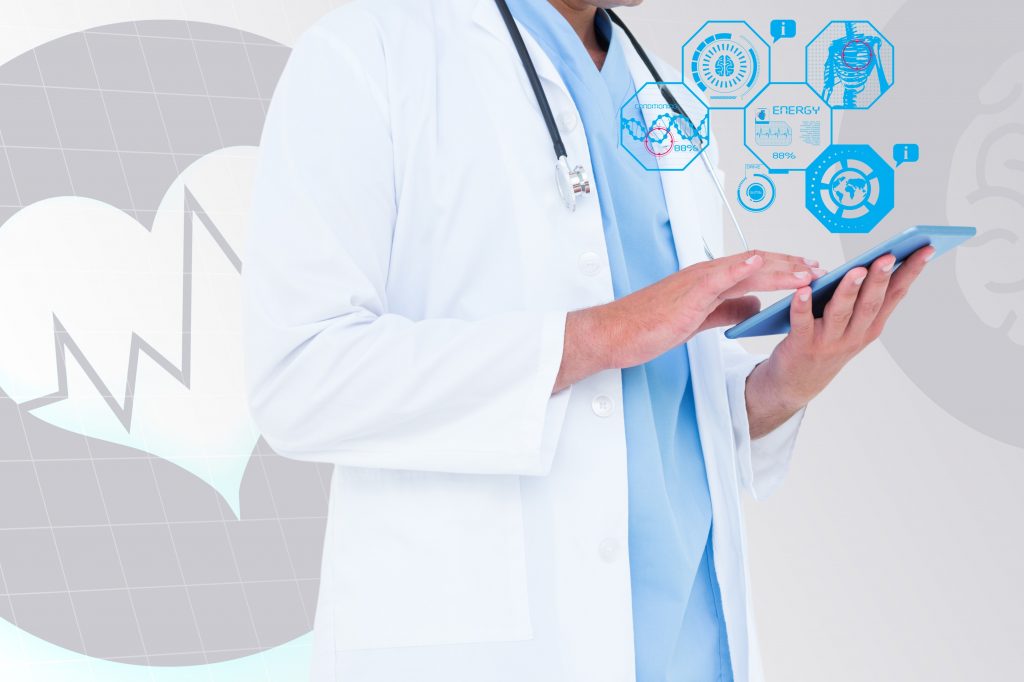Technology is revolutionizing the globe and bringing cutting-edge solutions to practically every aspect of our daily lives. Our modes of transportation are evolving enabling people to easily drive or sleep in an automobile. Innovative features like targeted advertising, healthcare apps and essential things that we have been considering are now available on our phones.
Technology can not only make daily tasks more enjoyable and simple, but it can also come close to saving our lives in emergencies. Due to the huge demand for medicine, the role of mobile apps in the healthcare industry grew crucial.
By keeping track of their daily water and supplement intake, they enable patients to keep tabs on their physical activity, avoid illness progression if any symptoms arise, and enhance their general well-being.
The latest technological innovations and interference are altering the healthcare technology business with mobile medical apps. We have only recently been able to comprehend the impact that mobile solutions have had on the evolution of the medical industry.
Patient Care with Healthcare Apps
Nearly all aspects of healthcare now use mobile technologies. Patients, healthcare providers can use the mobile technology alike. It frequently includes mobile phones, computers, tablets, wearable technology, and, in hospitals, radio frequency identification.
Using patient care portals to interact with patients, diagnose diseases remotely, obtain information from databases and colleagues online, and work jointly or separately with specialists anywhere in the globe are all possibilities for doctors. Many people have access to emailing their doctors and scheduling appointments over the phone or via video chat.
The use of artificial intelligence (AI), or computer-generated analysis and conclusions that approximate human reasoning, has been prevalent in the healthcare industry for many years. AI can help spot discrepancies in images that a human eye might miss, for instance, in radiology. It is frequently used in operating room navigation. Based on patient input, AI may use telehealth to inform clinicians when a patient might need care.
There are numerous smartphone health applications available for tasks like tracking meals and steps, managing medications, and getting in touch with medical professionals. There are apps for practically everything, including monitoring medical conditions, teaching patients, and prompting users to drink more water or take their meds.
The Advantages of Using Healthcare Apps in the Medical Sector

1. Improved accessibility
Unlike ineffective phone calls to doctors and healthcare providers, apps are revolutionizing the healthcare sector. These applications enable patients to schedule appointments, send secure communications, and connect to medical professionals around-the-clock for telemedicine consultations. Customers expressed high levels of satisfaction with telemedicine because they adore how convenient it is to see a doctor on their phone or other gadgets. Additionally, people don’t have to miss work or go across the entire city to the doctor’s office.
2. Increases medication compliance
Most patients find it challenging to control when or how they take their medications after being released from the hospital. It may cause additional illnesses and result in unfavorable hospital readmission rates.
By providing users with scheduled medication, drug intake reminders, and educational content that raises the likelihood that they’ll take their drugs as prescribed, mobile applications for medical support help to improve this.
3. Increases the effectiveness of doctors
Doctors are always under a lot of stress because they form the foundation of effective healthcare services. In particular, during the COVID-19 pandemic, about 60% of doctors report feeling emotionally exhausted. They have devoted a significant amount of time to data input and other administrative duties. As a result, digital solutions have been used to reduce the stress of the medical profession. These tools can assist medical professionals in finding solutions more quickly and under less pressure.
4. Improves diagnostic precision
Modern technologies have made keeping up of records of patient very easy. This greatly increased the accuracy of the whole diagnosis. Now that applications do automatic checks on prescriptions, nurses and healthcare professionals have the option to keep precise and thorough notes.
How Mobile Apps are Changing The Healthcare Sector?
1) Ensure uninterrupted data flow
The healthcare network is intricate, with constant data exchange between all players. Additionally, hospitals and other high-risk businesses require access to the data for accounting needs. This massive network can now move critical information more quickly thanks to the integration of mobile technologies, which also enables doctors and patients to collaborate.
Medical professionals now have more control over information, and how it’s dispersed. They don’t have to concern themselves with lost files and folders. Although some people are concerned about cybersecurity, the advantages that come with mobile health technology far exceed this anxiety.
2) Administer immediate patient care
Most doctors have had just a limited amount of access to their patients’ information for the past 20 years. Because of this, they were unable to immediately send patients up-to-date updates while still keeping track of the effects of the medications they were taking. Mobile app devices step up at this point change this dynamic.
Nowadays, almost every device a person owns can be utilized to maintain track of a patient’s medical records . Patients can stay informed on routine vital signs. Healthcare companies can instruct family members or caregivers on the vitals of a patient treatment facility through direct communication, while doctors can check on the patient directly using a camera on the user’s phone.
3) Make real-time communication possible
Real-time contact between patients and physicians is another example of how mobile apps are transforming the healthcare sector. People do not want or can visit their hospital to consult a healthcare provider, especially when there is a global lockdown. Global health conditions rise as a result, and the situation swiftly becomes serious.
However, organizations are now able to monitor patients’ status remotely utilizing HD cameras thanks to the incorporation of mobile apps made for doctors and patients. For instance, this real-time interaction over a video conversation increases patient loyalty, fosters a sense of support, and fosters rapport.
4) Provide patients with comfort
Over 67% of patients feel uneasy and even unsafe when they are not given updates on their health and the status of their treatment. But now have a way to stay up to date on the newest medical information, thanks to mobile technology.
Doctors can now provide important information about their analyses, how medication functions, and what patients should anticipate concerning their ailments. When patients feel worried and overwhelmed, open transparency helps to improve their understanding and gives them peace of mind.
5) Enables remote monitoring
Currently, the mobile market for the healthcare sector is flourishing. An increasing number of applications are being developed to usher in a new era of medicine. These digital solutions aid doctors in examining patients’ medical status and keeping track of their physical activities.
For instance, the Qualcomm business recently collaborated with a healthcare program in Arizona to enable the monitoring of patients with heart and pulmonary conditions. Patients wear a gadget connected to their mobile app as part of the testing process. The device gathers crucial biometric data from the user, to convey this information to their doctor, and the mobile app.
Conclusion
In the coming years, healthcare will continue to integrate technology. Healthcare apps will be used to provide high levels of patient assistance. These apps can introduce prevention programs that anyone can sign up for via a smartphone. This can make chronic illness prevention easier on a nationwide level.
